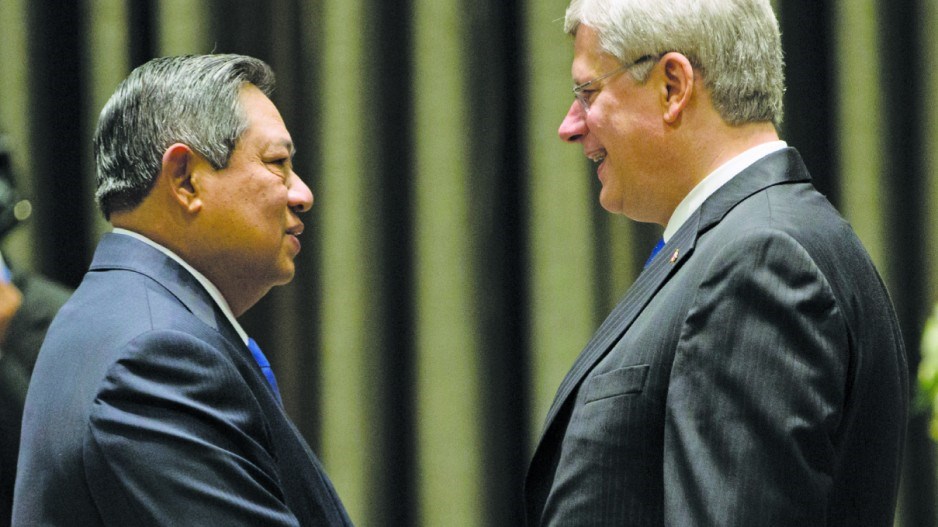Asians, it seems, have decided they want access to Canada’s reserves of energy even if many Canadians are still unsure about opening the gateway.
Malaysia’s Prime Minister Najib Razak was obviously excited last week when he announced the government-owned oil and gas company Petronas is to spend $36 billion to build a liquefied natural gas plant and fund a pipeline for export from British Columbia to Asia.
But Stephen Harper is not a man given to displays of emotionalism.
So it was necessary for him to say in Kuala Lumpur, en route to Indonesia for the summit of the Asia-Pacific Economic Co-operation forum, “We view the Petronas investment very positively. All the indications are that Petronas is looking at further investments, and Canada is very excited about this possibility.”
However, the Canadian government’s policy about major investments in energy resources by foreign state-owned enterprises is far from clear.
Last year the government agonized for months before allowing China’s state owned CNOOC to buy Nexon.
In that case the government added the rider that in future the takeover of Canadian energy companies by foreign state-owned enterprises would be allowed only in exceptional circumstances.
And Harper reminded reporters about the government’s “use of discretion” when the Petronas investment was announced.
Ambivalence among Canadian political parties, levels of government and communities toward trade with Asia, and especially trade in energy resources, is a serious problem, which was highlighted in a report published by the Asia-Pacific Foundation of Canada in June last year.
In its conclusions, the report said a broader and deeper relationship with Asia is essential to Canada’s economic future.
“Energy trade is the strongest economic card we have to play in our fledgling economic and political relationship with Asia,” it continued.
“Energy industries, broadly defined, are central to the Canadian economy and the potential for export of energy commodities and expertise is immense.
But, the report added, “Canada’s energy approach should be more clearly based on our national interest, not a collection of private interests.” •




